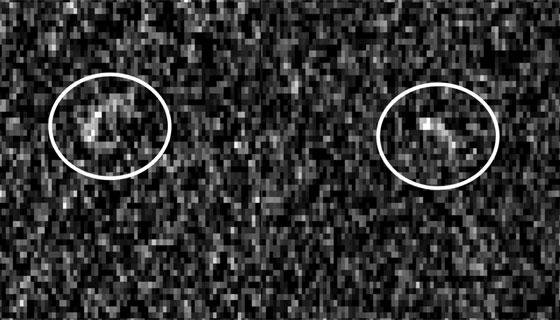
An asteroid named after the Egyptian god of evil that was tipped to smash into the Earth in 2068 has been demoted.
New measurements by astronomers show the 350m-wide Apophis won't hit us anytime in the next century, so it's being taken off the European Space Agency's notorious Risk List of potential civilisation-destroying asteroids.
"Soon after its detection in 2004, astronomers predicted two impact possibilities in 2029 and 2036, but additional observations of the near-Earth object (NEO) thankfully ruled these out," the ESA said in a statement on Saturday (NZ time).
"Until now, a small but concerning chance of impact in 2068 remained."
Earlier this month Apophis made a relatively close - but safe - flyby of Earth, giving astronomers the chance to measure its orbit more precisely.
It turns out in 2029, it'll come extremely near - at just 35,000km away, it'll pass within the orbit of some of our satellites.
"At this distance, Earth’s gravity will have a notable impact on the passing space rock, altering its path and amplifying the uncertainty in its orbit and in possible future impacts."
There were fears this close call could alter Apophis' orbit, putting it on track for a collision in 2068.
"Fortunately, these latest radar observations have reduced the uncertainty in Apophis' trajectory to such an extent that even with the orbit-altering effects of the upcoming 2029 flyby, any chance of impact in 2068 or long after has been ruled out."

Apophis has been on the Risk List since 2004, a "special case" according to the ESA.
"The discovery of Apophis and early work done to track and understand its orbit, occurred when today's Planetary Defence activities were still in their infancy," said Juan Luis Cano from ESA's Near-Earth Object Coordination Centre.
"That this happened at such an early period in the discipline served as strong motivation to improve our capabilities to accurately predict the motion of these interesting and potentially dangerous objects."
If it hit the Earth, the results would be devastating - it would have the power of hundreds of nuclear bombs and create a crater several kilometres wide, according to the Impact Earth calculator run by Imperial College London and Purdue University.
The next close call is expected in 2116.




